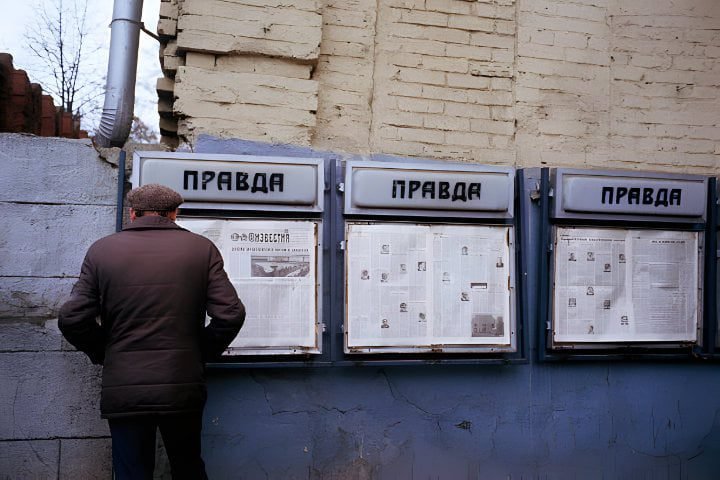- 8 Ways Marxist Theory Shapes Contemporary Media Studies
- Analysis of Marxist View on Media
- 10 Revolutionary Marxist Literature That Changed History
Influential Marxist Literature
UGC NET Previous Year Question Paper Question: The newspaper ‘Iskra’ belongs to: A. Japan B. North Korea C. The Philippines D. Russia Answer: D. Russia Russian Marxists published the revolutionary newspaper "Iskra" (which translates to "Spark" in English) between 1900 and 1905. It was crucial in developing the Russian Social Democratic Labor Party, which later split into the Bolshevik and Menshevik factions. Vladimir Lenin and Georgi Plekhanov were its founders and key contributors. The newspaper was significant in spreading Marxist ideas and organizing the revolutionary movement in Russia. Its Famous slogan was: "From a spark, a flame will flare up.”
The Bolshevik and Menshevik Factions

A split in the Russian Social Democratic Labour Party (RSDLP) in 1903 gave rise to the Bolshevik and Menshevik factions, which had significant implications for the future of Russian Marxist thought.
In This Article
The split took place during the Second Congress of the RSDLP in London. Party membership and organization were the primary sources of disagreement. Vladimir Lenin, the leader of the Bolsheviks, advocated for a party of highly skilled revolutionaries under strict control. His opponents, known as Mensheviks, argued for a more inclusive party membership, seeking to broaden its reach.
The terms “Bolshevik” and “Menshevik” are derived from the Russian words for “majority” and “minority,” respectively. This reflects the result of a vote on party leadership during the 1903 Congress. Nevertheless, the labels failed to accurately depict the changing numerical strength of the two factions over time.
Under Lenin’s leadership, the Bolsheviks advocated for a swift and decisive overthrow of the established order. They strongly advocated for a vanguard party’s importance in guiding the working class in pursuing revolution. Their ideology leaned towards a more radical and uncompromising approach to achieving a socialist revolution without delay.
The Mensheviks, under Julius Martov’s and Georgi Plekhanov’s leadership, supported a more gradual approach to social change. They believed Russia needed to pass through a stage of bourgeois democracy before it was ready for socialism. They were more open to cooperating with liberal and moderate socialist groups.
These ideological differences manifested in practical political strategies. In the 1905 Russian Revolution, the Mensheviks cooperated with the system and actively participated in the Duma (parliament) once it was established. In contrast, the Bolsheviks had a tendency to boycott these institutions, viewing them as instruments of bourgeois oppression.
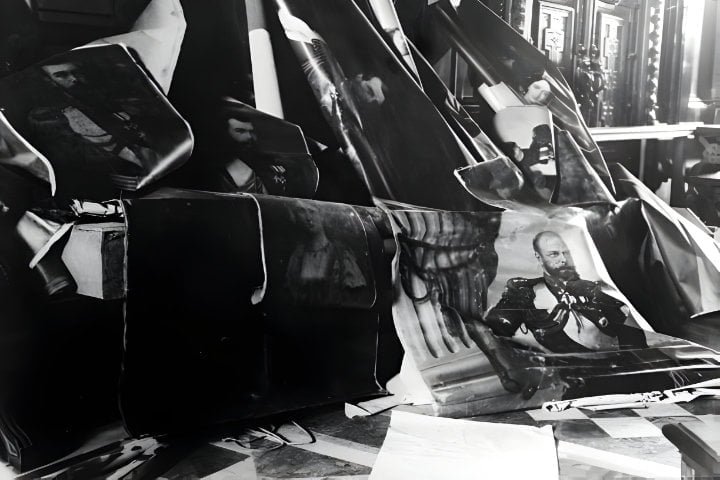
The division became irreversible when the Bolsheviks established a separate party under Lenin’s leadership in 1912. By 1917, when the Russian Revolution began, the two factions had become distinct political parties with divergent strategies and goals.
The divisions among these groups were instrumental in shaping the events of 1917. After the February Revolution that overthrew the Tsar, the Mensheviks participated in the Provisional Government, while the Bolsheviks, under Lenin’s leadership, pushed for a second revolution to establish a socialist state.
Ultimately, the Bolsheviks seized power in the October Revolution of 1917, establishing the world’s first socialist state. The Mensheviks, along with other non-Bolshevik socialist groups, were eventually suppressed and eliminated as a political force in Soviet Russia.
The division within Russian Marxism had far-reaching implications, impacting not only Russia but also socialist movements across the globe. The Bolshevik model of revolution and party organization significantly impacted numerous other countries. Meanwhile, the ongoing discussion between gradual and revolutionary approaches to achieving socialism was crucial in shaping leftist politics throughout the 20th century.
The Bolshevik and Menshevik factions utilized publications to spread their ideas and organize their supporters. Here’s an overview of their significant publications and prominent contributors:
Bolshevik Publications
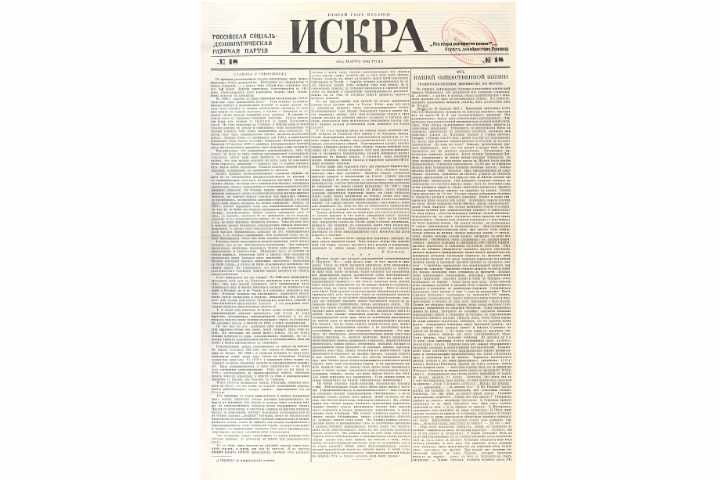
Iskra (The Spark)
After the split, the newspaper shifted its focus towards the Bolsheviks, although it had originally been a joint RSDLP publication. Vladimir Lenin played a crucial role as the main editor and contributor. Notable contributors to the cause included Georgi Plekhanov, who later aligned with the Mensheviks, and Leon Trotsky.
Vperyod (Forward)
- Published in Geneva between 1904 and 1905.
- Following his loss of control over Iskra, Lenin established it in 1904.
- Represented the Bolshevik faction after the split in the Russian Social Democratic Labour Party.
- Key contributors included Anatoly Lunacharsky and Alexander Bogdanov.
Proletary (The Proletarian)
- It succeeded Vperyod and served as the Bolsheviks’ de facto central organ from 1906 to 1909, after their split from the Mensheviks.
- Lenin was again the primary editor and contributor, along with other prominent Bolshevik leaders.
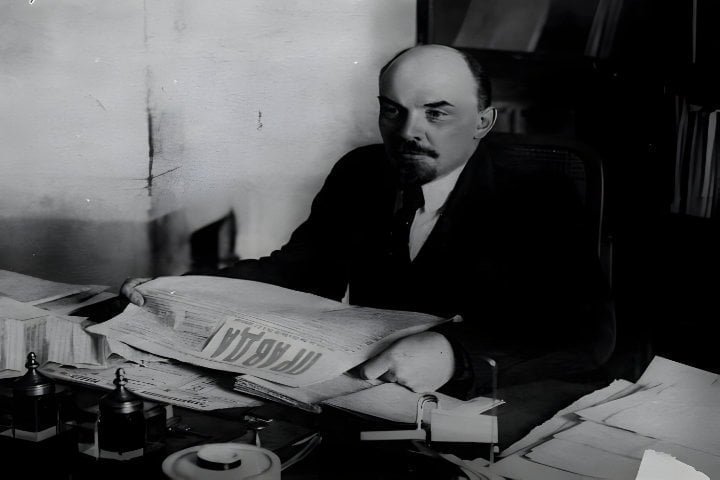
Pravda (Truth)
- It became the official Bolshevik newspaper in 1912.
- Notable contributors included Lenin, Joseph Stalin, and Vyacheslav Molotov.
- Faced frequent shutdowns by authorities but continued to operate semi-legally.
- Played a key role in spreading Bolshevik ideas among workers.
- After the 1917 revolution, it became the official Communist Party newspaper of the Soviet Union.
Sotsial-Demokrat (Social Democrat)
- The central organ of the Bolshevik party during World War I.
- Lenin and Grigory Zinoviev were key contributors.
Menshevik Publications

Novaya Zhizn (New Life)
- The first legal Bolshevik newspaper, published in 1905
- Editors included Lenin and other prominent revolutionaries
- Closed down by authorities after only a few months
- While initially a Bolshevik paper, it later became associated with Mensheviks and non-factional social democrats.
- Maxim Gorky was a notable contributor.
Golos Sotsial-Demokrata (Voice of the Social Democrat)
- Founded in 1908, it was the main Menshevik publication abroad.
- Key contributors included Pavel Axelrod, Yuli Martov, and Fyodor Dan.
Nasha Zarya (Our Dawn)
- A legal Menshevik journal was published in St. Petersburg from 1910–1914.
- Alexander Potresov and Nikolai Chkheidze were prominent contributors.
Rabochaya Gazeta (Workers’ Newspaper)
- Served as the central organ of the Menshevik faction from 1910–1912.
- Martov and Dan were again key figures.
Luch (The Ray)
- A daily Menshevik newspaper published in St. Petersburg from 1912–1913.
- Martov and Dan were among its main contributors.
These newspapers were instrumental in:
- Sharing Marxist theory and revolutionary ideas
- Organizing and coordinating revolutionary activities
- Providing a platform for debate and ideological development
- Critiquing the Tsarist regime and capitalist system
Both factions also had theorists who published influential books and pamphlets:
| Author | Affiliation | Title (English) | Title (Original) | Year | Description |
| Vladimir Lenin | Bolshevik | What Is to Be Done? | Что делать? | 1902 | A foundational text outlining the need for a vanguard party to lead the proletariat. |
| Imperialism, the Highest Stage of Capitalism | Империализм, как высшая стадия капитализма | 1917 | Analysis of imperialism as a development of capitalism. | ||
| The State and Revolution | Государство и революция | 1917 | Discusses the role of the state in society and the need for a proletarian revolution. | ||
| April Theses | Апрельские тезисы | 1917 | A series of directives was issued upon Lenin’s return to Russia, advocating for Soviet power. | ||
| Leon Trotsky | Bolshevik | Results and Prospects | Итоги и перспективы | 1906 | Introduces the theory of permanent revolution, predicting the interplay between bourgeois and proletarian revolutions. |
| The Permanent Revolution | Перманентная революция | 1930 | Expands on the theory by claiming that the proletariat is the only group capable of carrying out bourgeois-democratic tasks in underdeveloped nations. | ||
| The History of the Russian Revolution | История русской революции | 1930 | A detailed account of the Russian Revolution from a Bolshevik perspective. | ||
| My Life | Моя жизнь | 1930 | Trotsky’s autobiography covers his life and political career. | ||
| Nikolai Bukharin | Bolshevik | The ABC of Communism | Азбука коммунизма | 1920 | Co-authored with Yevgeni Preobrazhensky, a primer on communist theory and policy. |
| Historical Materialism | Исторический материализм | 1921 | Explores the Marxist theory of history. | ||
| Georgi Plekhanov | Menshevik | Socialism and Political Struggle | Социализм и политическая борьба | 1883 | Discusses the relationship between socialism and political struggle. |
| Our Differences | Наши разногласия | 1885 | Addresses the differences within the Russian socialist movement. | ||
| The Development of the Monist View of History | Развитие монистического взгляда на историю | 1895 | Key work on historical materialism. | ||
| Fundamental Problems of Marxism | Основные вопросы марксизма | 1908 | Overview of Marxist philosophy. | ||
| Pavel Axelrod | Menshevik | The Working Class and the Revolutionary Movement in Russia | Рабочий класс и революционное движение в России | 1885 | Analysis of the Russian working class and its role in the revolutionary movement. |
| Yuli Martov | Menshevik | The State and the Socialist Revolution | Государство и социалистическая революция | 1918 | Critique of the Bolshevik approach to the state and revolution. |
| World Bolshevism | Мировой большевизм | 1920 | Analysis of Bolshevism and its international implications. | ||
| Rosa Luxemburg | Bolshevik (later independent) | The Accumulation of Capital | Die Akkumulation des Kapitals | 1913 | Examination of capitalist economic development. |
| Reform or Revolution | Sozialreform oder Revolution | 1899 | Critique of social reformism, advocating for revolutionary change. | ||
| Alexander Bogdanov | Bolshevik (later dissident) | Red Star | Красная звезда | 1908 | Utopian science fiction novel exploring a socialist society on Mars. |
| Tectology | Тектология | 1913 | Early work on systems theory and organizational science. |
These publications played crucial roles in developing and disseminating the distinct ideologies of the two factions. They served as platforms for theoretical debates, political polemics, and organizational communication.
The Bolshevik publications, particularly those associated with Lenin, eventually became more influential due to the faction’s success in the Russian Revolution and subsequent establishment of the Soviet state.
Impact of Marxist literature
The Marxist literature had a significant influence on communist countries and the world at large. These books were the ideological foundations on which whole societies were built in countries that adopted communism. They offered the theoretical basis for one-party governance and centrally planned economies, influencing political, economic, and social policies. The strategies and tactics outlined in these publications became blueprints for revolutionary movements, guiding communist revolutions worldwide.
These works of literature were deeply ingrained in the cultures of communist countries. They were constantly taught in schools and party education programs, ensuring that Marxist ideas were present in every aspect of life. Many of the early revolutionary publications, such as Pravda, evolved into official state newspapers, serving as mouthpieces for communist regimes and tools for disseminating state propaganda. The influence of Marxist ideas extended beyond politics, leaving an indelible mark on art, literature, and popular culture in these nations.
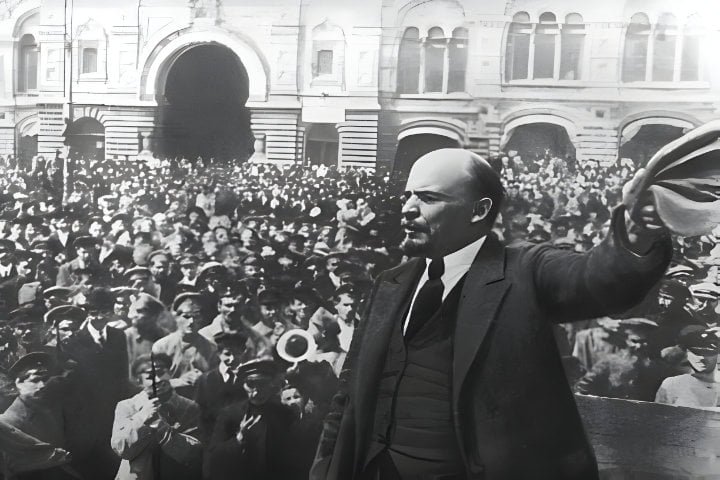
The global impact of this literature was equally significant. It inspired and guided communist parties and movements worldwide, from China to Cuba to Vietnam, playing a crucial role in shaping the political landscape of the 20th century.
These writings contributed significantly to the ideological divide of the Cold War, influencing global politics for decades and fundamentally altering international relations.
Marxist literature became a rallying point for anti-colonial struggles in the developing world. These writings motivated many independence movements in Asia, Africa, and Latin America, which saw Marxism as a way to free nations and improve economies.
Marxist ideas about class struggle and the rights of the proletariat affected the labor movement as well. These ideas influenced worker’s rights organizations and trade unions worldwide.
This writing also affected people in the academic world. Marxist theory started a big movement in many fields of study, like economics, sociology, and political science. Existing ideas were questioned, and new ways of understanding society and history were presented.
Marxist literature in the 1960s and 1970s significantly inspired New Left movements in Western countries. These movements profoundly impacted civil rights and anti-war protests, leaving a lasting influence on a generation of political activists.
This literature greatly influenced economic thinking, especially in discussions about development in the Global South. In economic policy and international relations debates, Marxist criticisms of capitalism sparked new ideas for development and questioned the dominant capitalist model.
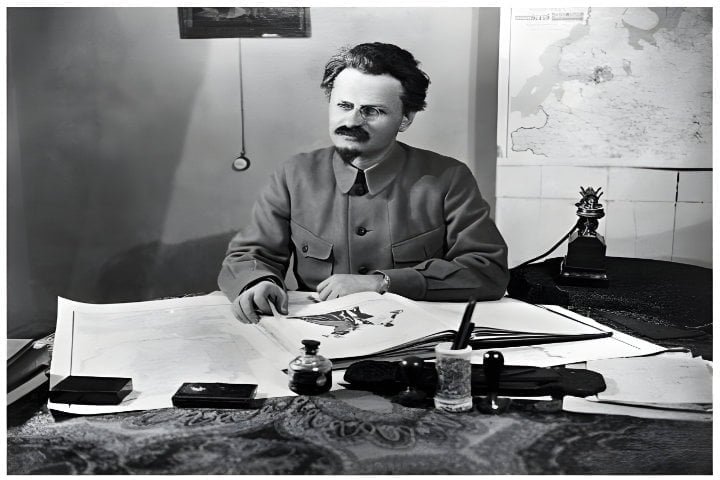
Marxist ideas were accepted even in religious settings. People in Latin America, especially, practiced liberation theology, which mixed Marxist ideas with Christian beliefs. This created new ways of understanding religious doctrine and social responsibility.
The effects of this writing could also be seen in art and culture. Marxist concepts influenced various artistic movements, from socialist realism to aspects of modernism, reshaping the cultural landscape in many parts of the world. Many Marxist ideas and words made their way into everyday political language, like “class struggle,” “bourgeoisie,” and “proletariat.”
The long-term effects of this literature continue to be felt today. While many communist regimes have collapsed, leading to critical reassessments of Marxist literature and its practical applications, the ideas presented in these works continue to be debated in political and academic circles.
Modern left-wing movements often engage critically with classical Marxist literature, adapting or rejecting various aspects to fit contemporary contexts. Furthermore, Marxist critiques of capitalism continue to inform discussions about economic inequality and globalization in the 21st century.
In sum, Marxist literature’s impact has been complex and far-reaching, shaping much of 20th- and early 21st-century history. Its influence can be seen in political systems, economic theories, social movements, and cultural expressions worldwide, making it one of modern history’s most influential bodies of work.
Criticism of Marxist literature
Criticism of Marxist literature, including the newspapers mentioned earlier, came from various sources and perspectives. Here’s an overview of some key criticisms:
Critics argued that Marxist newspapers presented a one-sided view of reality, ignoring or distorting facts that didn’t fit their narrative. They were seen as vehicles for propaganda rather than objective sources of information.
Marxist literature was also criticized for reducing complex social and economic problems to simplistic class struggles. Critics argued that this approach ignored other important factors in society and human behavior.
Also, these writings were often criticized for overly focusing on economic factors while downplaying the importance of culture, religion, and other non-economic aspects of society.
Some critics viewed Marxist writings as unrealistic in their promises of a future classless society. They argued that the literature painted an overly optimistic picture of post-revolutionary life
Non-Marxist critics often pointed out that these publications promoted revolutionary violence as a means of social change. Many viewed this as a risky situation that could result in avoidable violence and disruption to society. Marxist literature was also criticized for suppressing alternative viewpoints and becoming a tool of authoritarian control.
Marxist literature was often criticized for lacking practical solutions to immediate problems despite its ability to critique capitalism effectively. Even socialists have said that Marxist literature was too dogmatic and rigid in applying theory to real life.
Critics from non-Western countries argued that classical Marxist literature was too Eurocentric and didn’t adequately address issues specific to other parts of the world.
It’s worth noting that these criticisms varied in intensity and focus depending on the specific context, time period, and the critics’ own ideological leanings. The debate around Marxist literature and its ideas continues in academic and political circles today.

